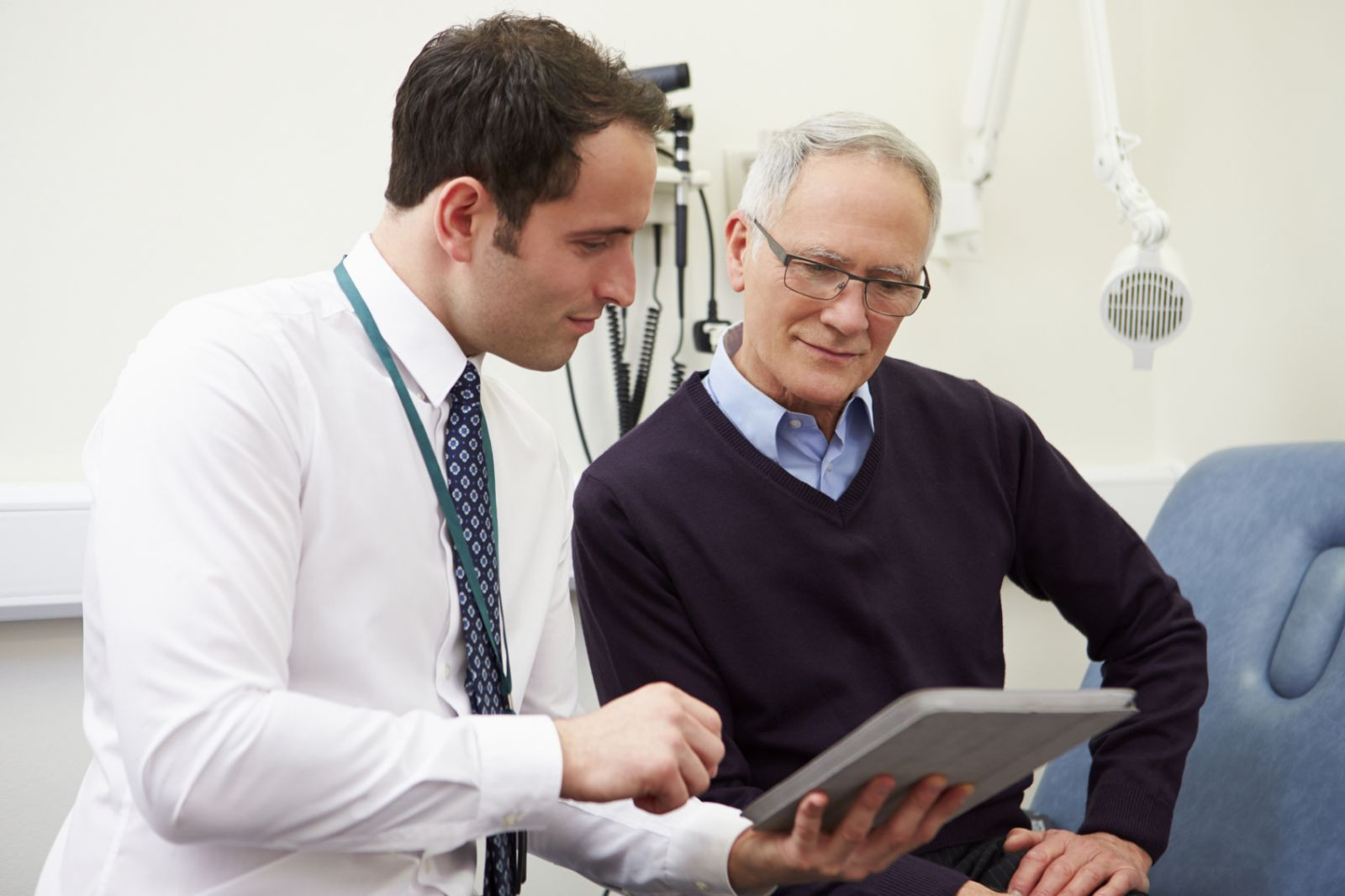
Trying to lose weight? Be careful not to lose muscle

Is your skin problem actually an autoimmune condition?

People with diabetes face higher risk of hearing loss

Antibiotic-free fixes for recurrent UTIs

Musculoskeletal syndrome of menopause: When menopause makes you ache all over

When can older women stop getting mammograms?

To lose weight, especially harmful belly fat, combine diet and exercise

Can men hold off on treating recurring prostate cancer?

The 7 types of rest and why we need them all

What are the early warning signs of cervical cancer?
Men's Health Archive
Articles
American Heart Association issues statement on cardiovascular side effects from hormonal therapy for prostate cancer
Is male menopause real?
In general, men don't really go through "menopause" because testosterone levels slowly decline over many decades. Symptoms such as low energy and decreased sex drive can sometimes be related to low testosterone levels that may improve with replacement therapy.
What could cause my breasts to become larger?
On call
Q. My breasts have begun to feel swollen and seem larger. What could cause this, and should I be worried about any potential health issues?
A. Swollen breasts in men are almost always caused by either one or both of two conditions: excess fat deposition in the breasts, or growth of actual glandular breast tissue (gynecomastia). Fatty deposition occurs in overweight men and is always present in both breasts. With gynecomastia, the breasts have a firm or rubbery consistency. While it usually affects both breasts, it can affect one breast much more than the other.
Should I continue PSA screening for prostate cancer?
On call
Q. I am 74 years old and unsure whether I want to continue with PSA screening for prostate cancer. Before deciding, I wanted to better understand my options since I probably would not want surgery or radiation therapy if I do have prostate cancer. What is your approach?
A. No matter what your age, men should ask themselves these types of questions before having a blood test for PSA (prostate-specific antigen) to look for hidden prostate cancer.
Can diet help fight prostate cancer?
Can adopting a healthier diet help fight prostate cancer? That's a question men newly diagnosed with prostate cancer often ask their doctors.
Several studies have shown that in countries where men eat a typical "Western" diet containing a large amount of meat, the incidence of prostate cancer, especially aggressive prostate cancer, is higher than in countries where plant-based foods are a primary part of the diet. Unfortunately, these studies weren't designed to prove cause and effect. So for now, definitive answers about prostate cancer and diet aren't yet in — although researchers are actively studying this topic.
Can I take ED drugs after a heart attack?
On call
Q. I had a major heart attack earlier this year and received a drug-eluting stent. My doctor tells me that it's now safe to exercise and engage in sexual activity. But is it safe to use erectile dysfunction (ED) medications?
A. Most men who have recovered from a heart attack can resume their usual sex life. Once your doctor allows you to engage in moderate aerobic activity — sexual activity is often equated to the exercise level of brisk walking — you may safely use ED medications with certain precautions.
New ways to test for prostate cancer
Recent advances can help men with a worrisome PSA result avoid immediate biopsy.
Prostate-specific antigen (PSA) blood testing receives high marks as an effective way to monitor disease activity in men diagnosed with prostate cancer. Yet, as a screening tool for prostate cancer, PSA testing is problematic.
PSA naturally tends to increase as men get older, but levels that get too high may suggest prostate cancer. A PSA level of less than 4 nanograms per milliliter (ng/mL) is often reassuring, unless there has been a sudden jump from a much lower number. Many doctors consider a total PSA level higher than 10 ng/mL as the threshold for getting a biopsy to check for cancer.
Focusing on your future
Make your remaining years the best possible with these strategies.
There's a saying: "The trouble is, you think you have the time." People may understand their lives are limited, but they often don't internalize how much time they actually have left. This mindset can delay goal setting and long-term preparation, which increases the chances of later problems — for instance, with finances, housing, or health.
"People don't like to talk about their mortality because they don't want to see themselves as 'old,'" says Joan Gillis, a geriatric clinical social worker and senior clinical team manager with Harvard-affiliated McLean Hospital. "But embracing this reality can help people grasp a sense of urgency, so they get the most from their remaining years."

Trying to lose weight? Be careful not to lose muscle

Is your skin problem actually an autoimmune condition?

People with diabetes face higher risk of hearing loss

Antibiotic-free fixes for recurrent UTIs

Musculoskeletal syndrome of menopause: When menopause makes you ache all over

When can older women stop getting mammograms?

To lose weight, especially harmful belly fat, combine diet and exercise

Can men hold off on treating recurring prostate cancer?

The 7 types of rest and why we need them all

What are the early warning signs of cervical cancer?
Free Healthbeat Signup
Get the latest in health news delivered to your inbox!
Sign Up











